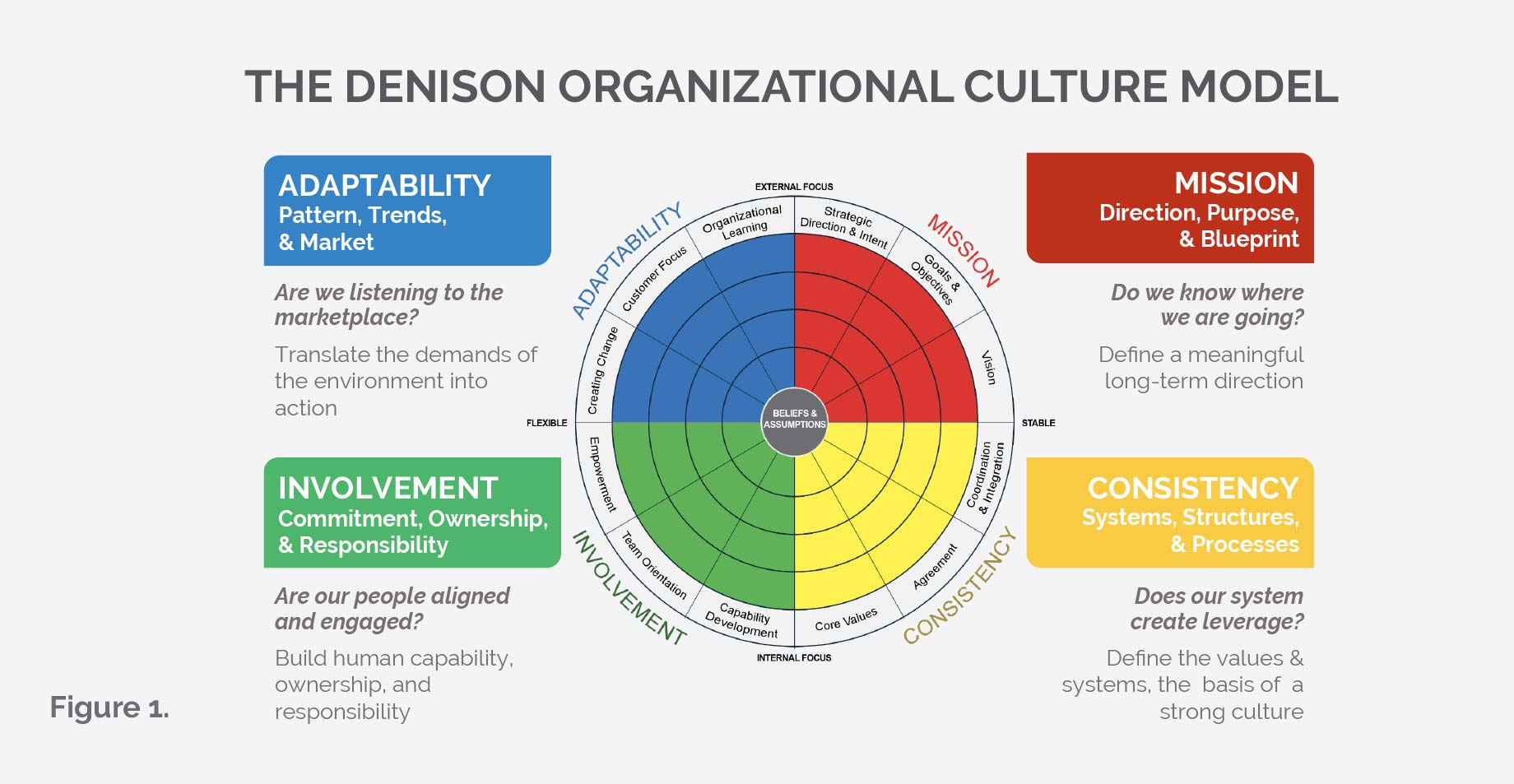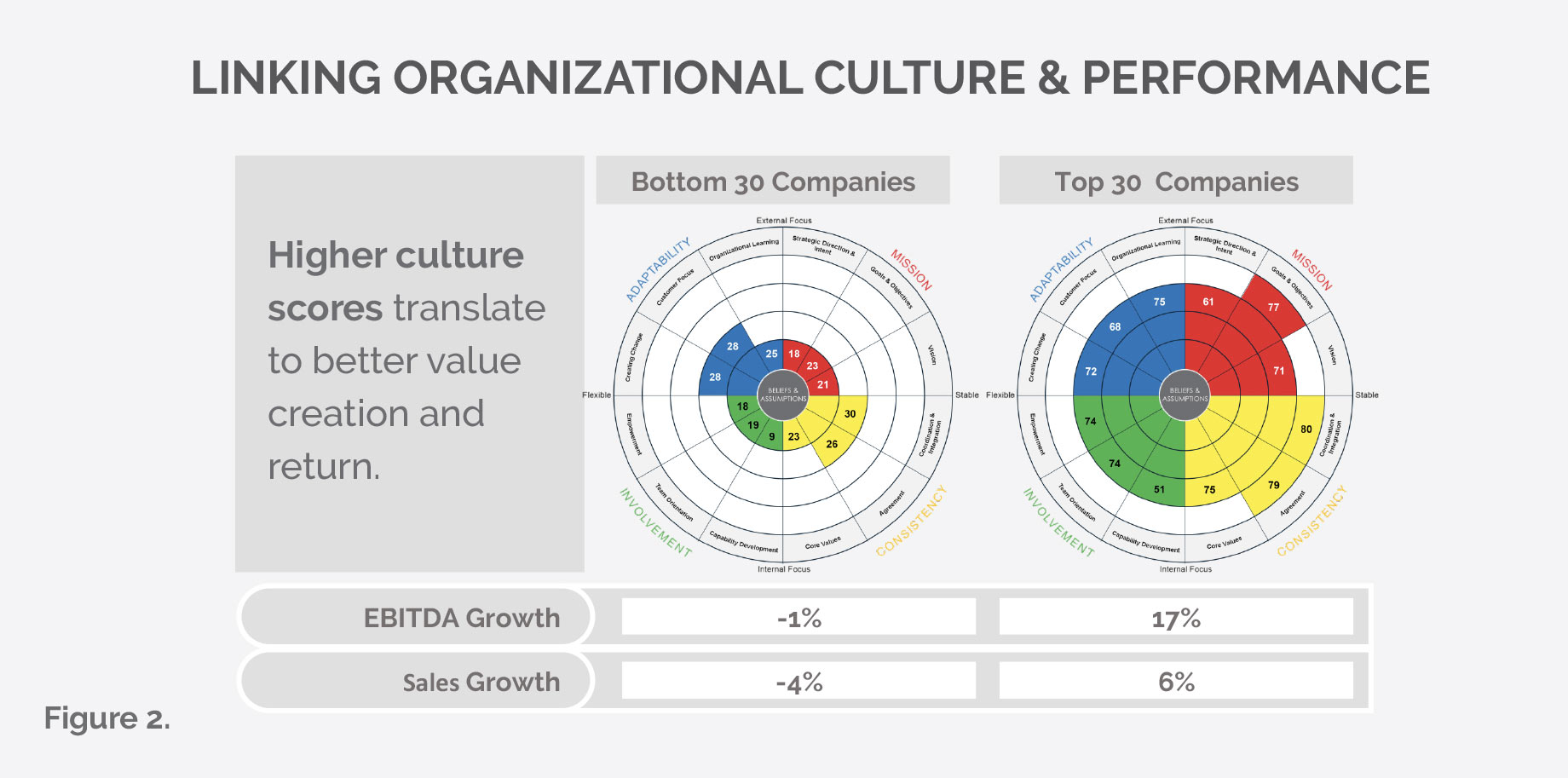Should Corporate Culture Be Regulated in the Financial Services Industry?
By DANIEL R. DENISON, CHAIRMAN and FOUNDING PARTNER
The list of scandals is a familiar one: Enron, WorldCom, LIBOR, Countrywide Financial, VW, PCA, Tesco, Odebrecht, FIFA, Wells Fargo…and it goes on and on. It keeps on growing and damages business reputations around the world every day. This leaves firms and regulators in every country around the world with a similar dilemma: How should they respond to the “cultural” issues that seem to be at the heart of the most egregious examples of fraud? Can culture be “regulated”? Should culture be regulated? What would it look like if it was?
Many esteemed voices in the industry have spoken out on these issues. As William Dudley, President and CEO of the New York Federal Reserve Bank, has noted, an ethical culture is essential for providing consumers with the trustworthy institutions that are required in order for the industry and the economy to thrive. While constantly making a compelling case for the importance of managing culture, he has also recognized that “the establishment of too many ‘bright line’ rules may prove counterproductive in encouraging a good culture.”
Oxford Professor Chris Hodges contrasts the traditional top-down command and control compliance model aimed at deterrence, with what he calls the bottom-up self-regulated model. He concludes that a hybrid model of both, which he calls “regulated self-assurance” is emerging in the European Union – although each country does take their own approach.
Thus, his approach echoed Francis Fukuyama’s insight that “people who do not trust each other will end up cooperating only under a system of formal rules and regulations, which have to be negotiated.”

What is Culture?
As someone who has spent his career as both a scholar and a consultant, it is probably helpful to start with a definition or two. Simple definitions of culture include “the way we do things around here,” or “what we do when we think no one is looking.” More sophisticated definitions, like Edgar Schein’s, define culture in terms of the values, behaviors, and underlying assumptions that lie at the core of any organization. If there is one thing that I have learned from my 20+ years of listening to executives describe the “culture” issues in their own organizations, it is that “culture” is the word that people start to use when they realize that the problems they are trying to solve have three distinct, but interrelated, components: the mindset of individuals, the behavior of leaders, and the organizational system.
The system always reflects the mindset and behaviors of past leaders and followers, and has tremendous inertia. Individual mindsets and behaviors are possible to change, but they will always tend to revert to the old way if the new behaviors do not align with the system. That means that successful culture transformations take place only when they address all three levels at the same time.
Scaling a Scandal Requires
a System
a System
The scandals that really take off are the ones that are able to create a system that reaches far beyond individual culpability. Moreover, they really take off when the individual cogs in the machine become unaware of the ethical component of their work and are focusing all of their efforts on “hitting quarterly targets” and getting their bonuses. The sub-prime mortgage crisis relied on innovators who created a breakthrough approach to solving an age-old problem: “How can you make money in the mortgage business if people don’t pay back their loans?”
Countrywide Financial CEO Angelo Mozilo, among others, figured out an innovative way to charge enough fee income up-front to profit even when their borrowers defaulted two or three years later. Voila! The success of Countrywide, at least for a while, was independent from the ability of their clients to pay back the mortgage. Securitize the debt, and insure those who invest in the securitized debt, and the system quickly scaled up to global proportions.
Or consider Wells Fargo’s recent scandal. The core of the problem involved a system designed to hit their performance targets for opening up new accounts by creating new accounts for existing customers without them knowing. The pressure to perform was intense. The most chilling part of the story for me was about the manager who claimed that she was under such intense pressure to deliver that she took to drinking Purell hand sanitizer—which contains quite a bit of alcohol—from the bathrooms! Wells Fargo claimed to have fired 5300 “bad apple” employees from the unit that generated this fraud, but apparently no one asked if this was about individual bad apples, or if it was about a bad “orchard”—the system that produced the bad apples.
“No one asked if this was about individual bad apples, or if it was about a bad ‘orchard’—the system that produced the bad apples.”
Culture Could Be Regulated, But It’s a Bad Idea
The best examples of successfully managing culture probably come from “safety culture” efforts in industries like civil aviation, nuclear power, or even healthcare or the food industry. Cultural characteristics of these organizations can be measured and monitored, and the problems that are identified quickly become a focus of management attention. Culture can be measured and monitored, and industry associations and consultants who serve the industry provide benchmarked measurement methodologies that provide feedback and accountability.
Interests are aligned closely enough that it’s possible to do accurate measurement. But I would argue that the industries where these solutions have emerged all represent situations where it is quite a bit more difficult to devise unethical ways to gain competitive business advantage than it is in financial services. To be sure, there are discussions in each of these industries about regulating culture; but—at least from my perspective—most of the action is at the firm level and the industry level.
It’s a classic example of Chris Hodges’ idea of “regulated self-assurance.” It is encouraged and supported by regulators, but is not a direct form of monitoring and compliance. When monitoring and compliance take over, the incentives to “give the right answer” and “game the system” become irresistible. Cynicism builds, and what started as a well-intentioned effort becomes counterproductive.
Impact Business Performance
We have found that the soundest approach to managing culture at the firm and industry level is to appeal to the commercial benefits that come from a positive culture. Is an ethical culture a business advantage? Or is an unethical culture a business advantage? Our research has focused for decades on understanding how the culture of the organization influences the performance of the business. Our approach emphasizes four culture traits that the research shows have the biggest impact on business performance: A strong sense of mission, a high level of adaptability, a deep commitment to the involvement of their people, and a strong foundation of consistency.
There’s a lot of research on this model and the findings are pretty clear: Organizations that have better cultures tend to have better performance. Figure 2 shows an example of the link between culture and performance. This study looked at 60 companies that were owned by a private equity firm, and studied the performance differences between the ones with high and low culture scores. The results speak for themselves: The firms with better culture scores have much stronger growth in both EBITDA and Sales.
Three Signs of a Scandal
Follow the money. Scandals start as creative ways to cut corners in order to gain a temporary business advantage. Small scandals are not big problems for the industry. The problems come when the schemes succeed and get scaled up to a level where they compete and encourage others to follow suit.
Where there’s smoke, there’s fire. When first questioned, the reaction is often to pretend that the fraud is an isolated incident, when it is actually widespread. Former VW CEO Martin Winterkorn takes the prize for this. When the scandal was first exposed, Winterkorn claimed that the problems were due to the “terrible mistakes of a few people.” By the end of the week, he had resigned. Instant deniability is one of the clearest signs of a cover-up. How could someone accurately know the limits of a problem that they were unaware of the day before?
The “smartest guy in the room.” The perpetrators usually come to believe that they have come up with an ingenious solution that no one else could be clever enough to devise. Because of that, they also often believe that they are smart enough to keep it undercover as the practice scales up. Very few scandals grow to a scale to cause real problems for the industry without an enormous dose of arrogance.
Where there’s smoke, there’s fire. When first questioned, the reaction is often to pretend that the fraud is an isolated incident, when it is actually widespread. Former VW CEO Martin Winterkorn takes the prize for this. When the scandal was first exposed, Winterkorn claimed that the problems were due to the “terrible mistakes of a few people.” By the end of the week, he had resigned. Instant deniability is one of the clearest signs of a cover-up. How could someone accurately know the limits of a problem that they were unaware of the day before?
The “smartest guy in the room.” The perpetrators usually come to believe that they have come up with an ingenious solution that no one else could be clever enough to devise. Because of that, they also often believe that they are smart enough to keep it undercover as the practice scales up. Very few scandals grow to a scale to cause real problems for the industry without an enormous dose of arrogance.

Conclusions
This suggests that the most effective way to influence culture in the financial services industry might be to try to reposition the culture discussion to be a discussion about creating competitive advantage. The evidence to support this approach is quite strong, but the recognition of that body of research seems to have played little role in the discussion thus far. Regulators could be more aware of this body of work, and might focus on supporting and giving visibility to positive examples of how corporate culture contributes to the commercial success of individual banks.
Dan Denison is the CHAIRMAN and FOUNDING PARTNER of Denison Consulting.
Connect with Insights from Denison
If you’d like to be kept up to date when we release a new TRANSFORM article or important piece of research, we can notify you so you have immediate access. Yes, please let me know.



